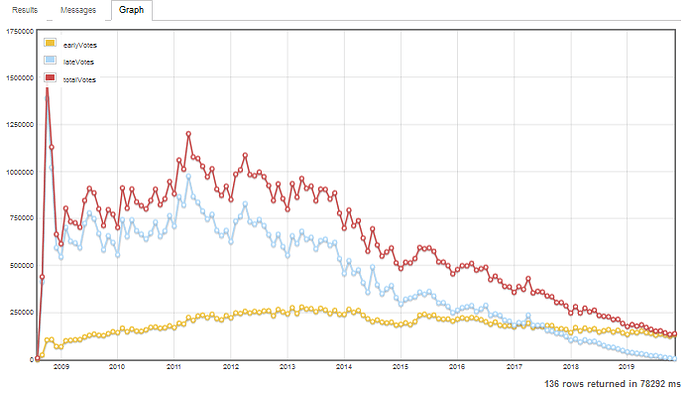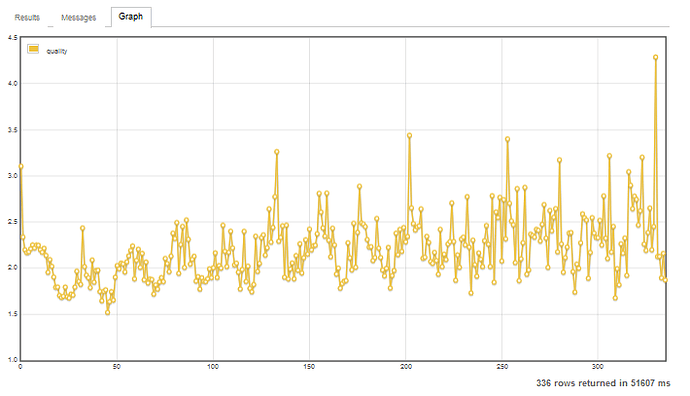I must say that the voting on comments works very well for me to quickly see the important comments.
But for questions and answers…
For answers it is just a kudos-system. There is not much meaningfull differentiation to make between different answes (there aren’t, on average, many answers per questions) except in the few rare cases when questions have many multiple answers.
But then (when there are many answers) it can still fail a lot. For instance, when a new diamond is created as response to an old question with lots of sandy answers. It basically locks any question (reduces motivation to improve the q&a) after a certain time because new answers will gain much less votes.
(it’s not for nothing that some people tend to jump to questions with quick answers, but they might be short and unresearched and possibly including code that doesn’t even work perfectly because it hasn’t been checked, that is gaming the system, fastest gun, which becomes a problem to a collaborative community.
Voting (the psychological way it works) is creating an incentive to respond quickly and this influences the quality of answers, or at least it did influence me, even on a relatively slow q&a site like CrossValidated, to answer more fast than best. And from another angle it made me demotivated to answer old questions on physics/astronomy where I obtained less votes than on CV eventhough I am a physicist and not a statistician. )
For questions it may differentiate between more or less important questions (at least in terms of popularity). But I believe there is a large variance (source of error) in the rating of equally important questions. Especially most questions (a large majority) tend to fall in the categories of 0 score or 1 score, and there isn’t that much differentiation going on. The relative fraction of 0 and 1 score (determined after 30 days) questions is increasing. The absolute number of new questions with score >1 (after 30 days) is decreasing. It is not a sustainable system.
Anyway, whatever one may find about voting and reputation, possibly it might be something that should vary from community to community depending on their needs. Some care more some care less.
Then basic voting should be MVP but it might be nice to design it in a modular/optional way, such that each site/community can decide about it and include it or not (and add their own flavour of reputation to it if required). To me it doesn’t seem neccesary for a Q&A site, however it may be neccesary on order to build the community that is behind the site.
I believe that this might be an important consideration for the MVP. For who are you creating this software? I guess that this codidact might become a new standard for Q&A (if sufficient energy is put into it; then these Q&A websites might pop up like websites running CMS systems like Jooml/Drupal/etc or blogging software like WordPress and it can become a new genre) and then flexibility should be an important part of the design in order to be suitable for many different communities.



